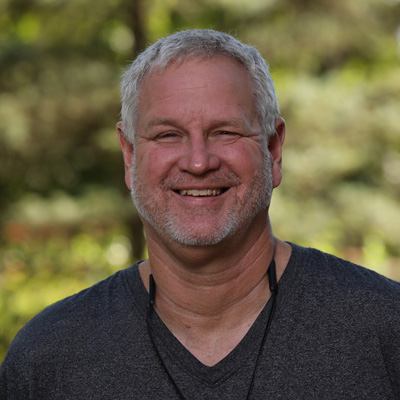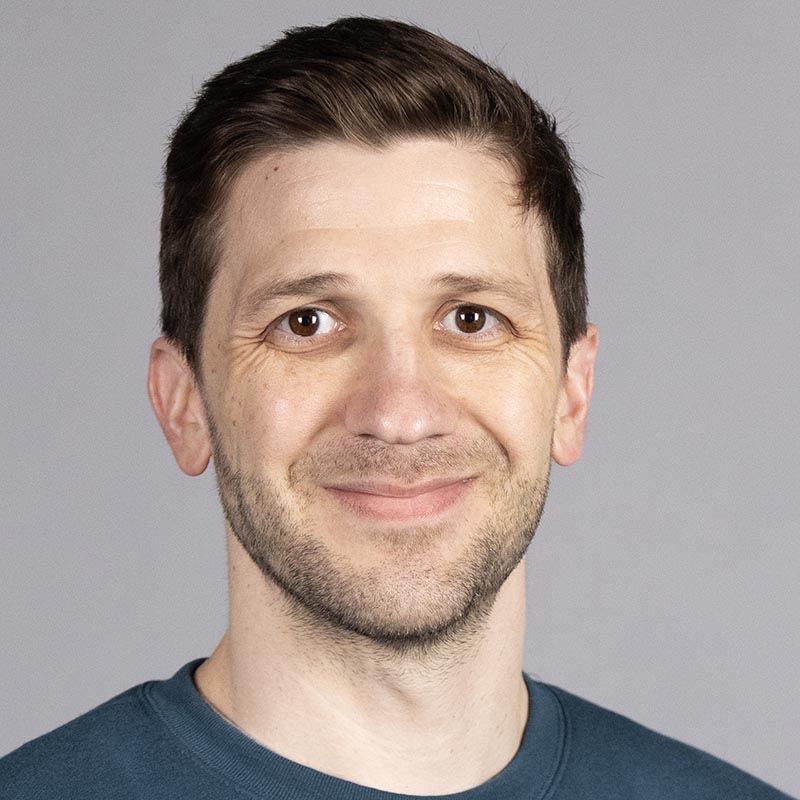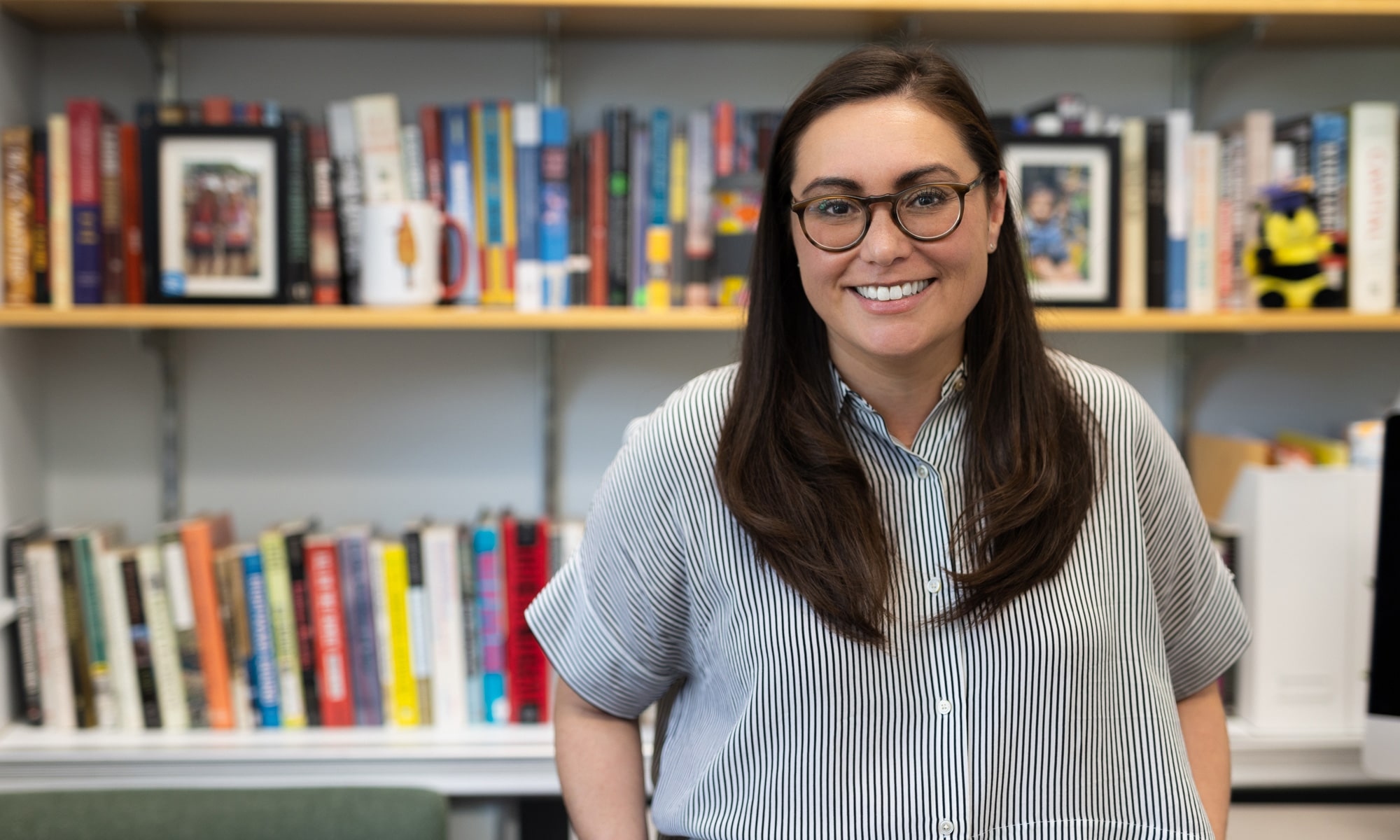Assistant Professor Jessica Burch arrived at Denison University three years ago having followed a circuitous route — one that did not escape the attention of her global commerce students.
Burch spent seven years working in the private sector, including stints as a consultant for Deloitte, the world’s largest professional services network, and Grant Thornton LLP, the sixth-largest U.S. accounting and advisory organization, before embarking on a career change that led her to higher education.
While introducing herself to Denison students and explaining her background, Burch was struck by a keen classroom observation.
“One student said, ‘This makes you a global commerce adult,’’’ Burch recalled. “She was right. Moving from the business world to history, I saw how much consulting and academia rely on a shared skillset — the ability to ask good questions, read carefully, research widely, and craft well-grounded arguments. Those are the very things our liberal arts students are now learning.”
Global commerce, an interdisciplinary major, gives students an opportunity to explore how markets and commerce operate from a liberal arts perspective. Added to the university’s curriculum in 2016, global commerce has become Denison’s fourth-most popular major, boasting 204 students as of the 2022 spring semester.
Burch, a Los Angeles native, shared her thoughts about the popular major, her affinity for Denison, and her frustration with her beloved Lakers’ penchant for signing aging stars to the roster.
What do you like about teaching at Denison?
I’ve gotten to know all my global commerce students, and I feel I have a good relationship with them. The smaller class sizes are advantageous. I came here from teaching at a university where I’d have 80 to 100 students in a class. There’s only so much you can get to know about individuals when you are working with classes that size. It also limits the kind of projects you can do.
How does Denison’s global commerce program compare with others around the country?
It only exists here. We invented the global commerce major. There are other schools doing similar things — liberal arts programs geared toward understanding global economies — but global commerce is unique in the way we teach it at Denison.
Our program emphasizes both breadth and depth. Students explore the global economy through the lenses of history, economics, anthropology, and other disciplines. They also gain deep insight into the nuances of economic life by choosing an area of global focus. Each of our students studies the language and culture of a particular region through coursework and usually lived experience in study abroad.
Compared to when I went to college, the globalized world today demands that level of cultural fluency and agility on top of an understanding of how economies work. Having taught in more conventional business schools, I can say from experience that what we are doing here is truly different.
How is your private sector background useful in the classroom?
I can articulate real-world connections and tell students how certain things worked for me. Students can ask, “How is the topic you are teaching useful?” I can say to them, “Here’s a time I actually used this knowledge or set of skills I learned in my own liberal arts education.”
What’s one piece of advice you can give to students on their educational journey?
One advantage of a liberal arts education is your exposure to many different subjects and potential career paths. You should take a lot of different classes because you never know what might spark an interest.
I only took one history class as an elective as a senior undergrad, and I thought, “Shoot, I should have tried this earlier. This is actually something that I’m into. I should have been doing this all along!” So when I was ready to make a change from consulting, but didn’t really know what else I wanted to do, I applied to the interdisciplinary master’s program in social sciences at University of Chicago on a lark. And it turned me into an historian of capitalism.
My wish for students is that they have the luxury to pursue their passions across different careers in the way that I did. Given the pace of technological innovation and automation, we don’t really know what job skills will be in demand in 10 to 20 years. But if you can learn new things and if you can think critically and ask questions and find answers, then you’ll be fine. The ability to learn quickly will always be in demand.
You are teaching a senior capstone program this semester. What does that involve?
This is one of my favorite courses to teach! It’s where we really challenge students to be creative and think outside the profit-maximization framework that dominates the business world today.
Half of the course is focused on a team project where four or five students work together over eight weeks, identifying a problem somewhere in the world. It could be an economic problem, a public health problem, an environmental problem, or a social problem that contributes to inequality. The students come up with a social enterprise that’s capable of addressing the problem. Their final project is a presentation to visiting executives that we invite from outside Denison, and they pitch a business plan for it.
Last year, one team came up with a project that was going to connect alpaca farmers in the mountains of Peru with American markets. The people make hypoallergenic blankets out of the alpaca fiber, and their local markets are saturated. Selling them in America, they could make significantly more money.
This year, a team pitched a fractional-ownership model — which has mostly been applied to luxury goods like private jets and vacation homes — to make electric vehicles more accessible. Their long-term vision was not just to get some cars off the road but to potentially revolutionize the way people think about car ownership. This is the kind of cool stuff our students come up with at Denison.








